As someone who loves to cook, I’ve often wondered if olive oil and vegetable oil are interchangeable. While they are both used in cooking and have a similar texture and appearance, are they the same thing?
In short, the answer is no.
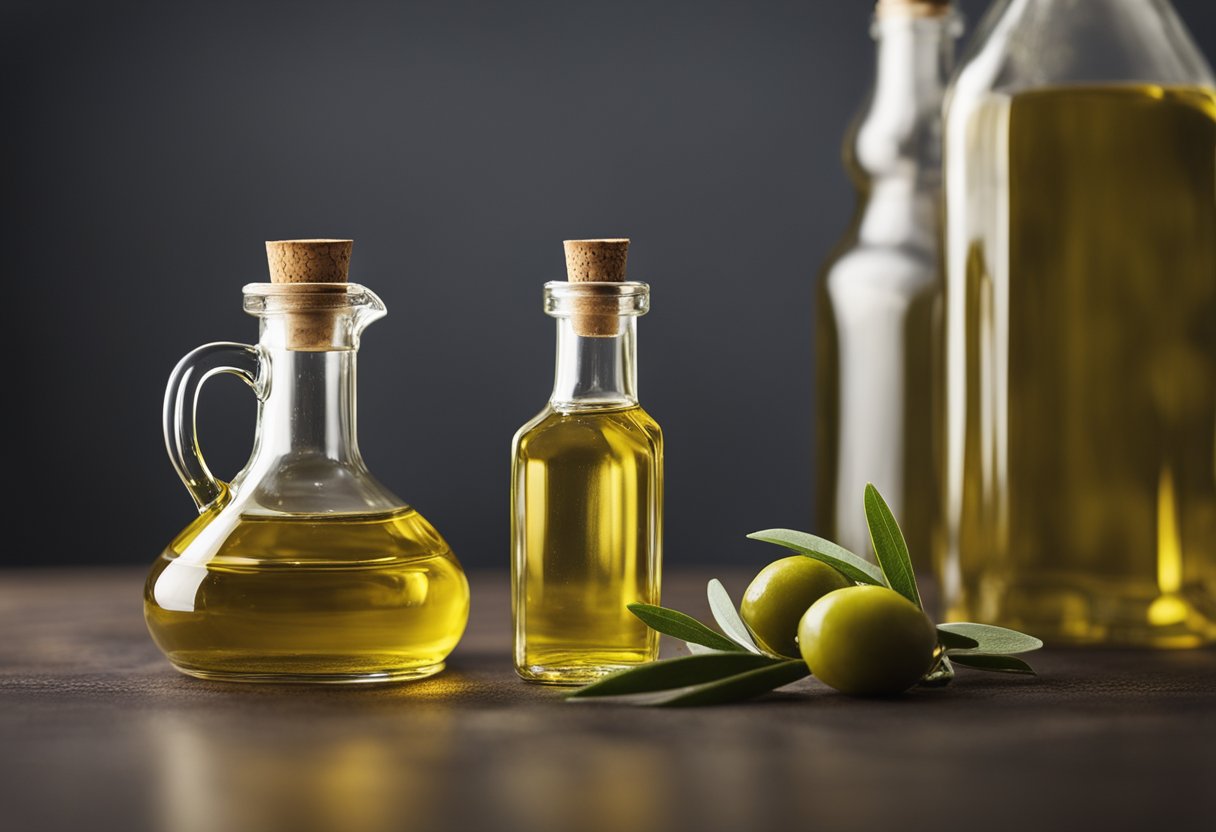
Olive oil and vegetable oil are two distinct types of oil with different properties and nutritional profiles. Understanding the differences between these two oils can help you make more informed decisions about which oil to use in your cooking.
In this article, I’ll compare and contrast olive oil and vegetable oil, discussing their extraction and processing, nutritional profiles, health benefits and concerns, taste and cooking applications, smoke point and heat stability, specific types of vegetable oils, olive oil varieties, and substituting and using oils interchangeably.
Key Takeaways
- Olive oil and vegetable oil are not the same thing and have different properties and nutritional profiles.
- Olive oil is extracted from olives, while vegetable oil is made from a variety of plants.
- Olive oil has a higher smoke point and is better for high-heat cooking, while vegetable oil is better for baking and frying.
Understanding Olive and Vegetable Oil
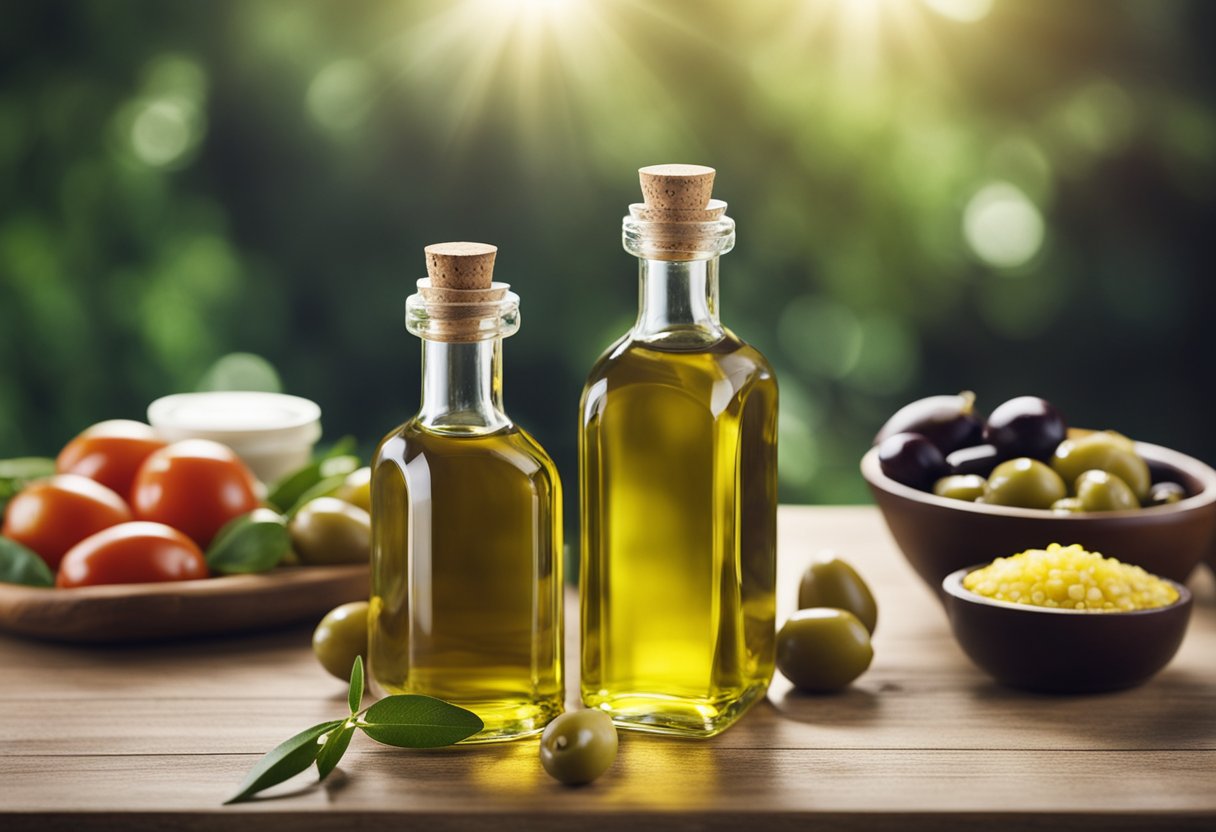
As a nutritionist, I am often asked whether olive oil and vegetable oil are the same thing. While they may look similar and serve similar purposes in cooking, they are actually quite different.
Olive oil is made from the fruit of the olive tree, while vegetable oil is made from a variety of sources such as seeds, nuts, grains, and vegetables.
Olive oil is often considered a healthier option due to its high levels of monounsaturated fats and antioxidants, while vegetable oil is often highly processed and may contain unhealthy trans fats.
When it comes to cooking, olive oil and vegetable oil have different smoke points, which is the temperature at which they start to smoke and break down.
Olive oil has a lower smoke point than vegetable oil, which means it is better suited for low to medium heat cooking, such as sautéing and baking.
Vegetable oil, on the other hand, has a higher smoke point and is better suited for high heat cooking, such as frying and roasting.
It’s important to note that not all vegetable oils are created equal. Some, such as canola oil and avocado oil, are healthier options than others due to their lower levels of saturated and trans fats.
It’s always a good idea to read the label and choose a vegetable oil that is minimally processed and free of trans fats.
In summary, while olive oil and vegetable oil may look similar, they are quite different in terms of their source, nutritional profile, and cooking properties.
When choosing between the two, it’s important to consider your specific cooking needs and health goals.
Extraction and Processing
When it comes to the extraction and processing of olive oil and vegetable oil, there are some key differences between the two.
Olive oil is typically extracted from the fruit of the olive tree using mechanical means, such as pressing or centrifugation.
The resulting oil is often referred to as “virgin” or “extra-virgin” olive oil, and it is generally considered to be of higher quality than oils that have been refined.
Vegetable oils, on the other hand, are typically extracted from the seeds or fruits of various plants using a variety of methods, including mechanical pressing, solvent extraction, or a combination of the two.
The resulting oils are often refined to remove impurities and improve their shelf life.
One of the key differences between olive oil and vegetable oil is the degree to which they are refined.
While some types of vegetable oil, such as canola oil, are minimally processed and retain much of their natural flavor and nutritional value, others are heavily refined and may contain additives or other chemicals.
Refined olive oil, on the other hand, is still considered to be a high-quality oil, despite the fact that it has undergone some processing.
This is because the refining process used for olive oil is often less harsh than that used for other types of oils, and it is designed to preserve as much of the oil’s natural flavor and nutritional value as possible.
Overall, while both olive oil and vegetable oil are derived from natural sources and can be healthy additions to a balanced diet, there are some key differences in the way they are extracted and processed that can affect their quality and nutritional value.
It is important to choose oils that have been minimally processed and are free from additives or other chemicals whenever possible.
Nutritional Profile
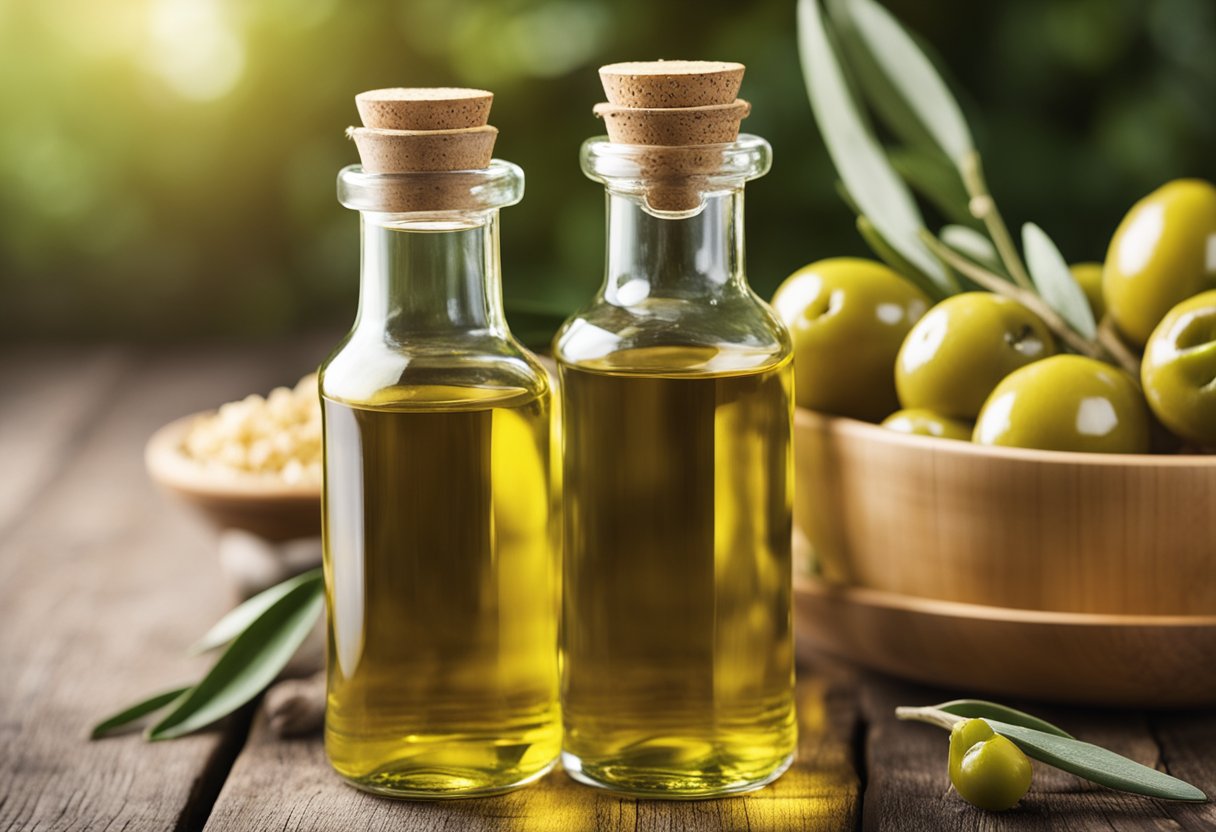
Both olive oil and vegetable oil are types of fat that provide calories and nutrients. However, their nutritional profiles differ in several ways.
Olive oil is a good source of monounsaturated fat, which is known to have a positive effect on heart health. It also contains polyphenol antioxidants, vitamin E, and vitamin K, which have been linked to reduced inflammation and lower cholesterol levels.
One tablespoon of olive oil contains approximately 120 calories, 14 grams of fat, and no carbohydrates or protein.
On the other hand, vegetable oil is a blend of different oils, such as soybean, canola, and corn oil. It contains a mix of saturated, monounsaturated, and polyunsaturated fats.
Vegetable oil is often highly processed, which removes some of the healthy micronutrients and antioxidants found in the original oils.
One tablespoon of vegetable oil contains approximately 120 calories, 14 grams of fat, and no carbohydrates or protein.
When it comes to specific types of fats, olive oil contains more monounsaturated fats, while vegetable oil contains more polyunsaturated fats.
Monounsaturated fats have been shown to have a positive effect on heart health, while polyunsaturated fats, such as omega-3 and omega-6 fatty acids, are essential for overall health but should be consumed in moderation.
In terms of micronutrients, olive oil contains more vitamin E and vitamin K than vegetable oil. Vitamin E is an antioxidant that helps protect cells from damage, while vitamin K is important for blood clotting and bone health.
Vegetable oil, on the other hand, contains more omega-6 fatty acids, which are important for brain function and growth but can be harmful in excess.
Overall, while both olive oil and vegetable oil provide calories and nutrients, their nutritional profiles differ in several ways. Olive oil is a good source of monounsaturated fat and antioxidants, while vegetable oil is a blend of different oils and often highly processed.
It is important to choose oils based on their nutritional value and to consume them in moderation as part of a balanced diet.
Health Benefits and Concerns
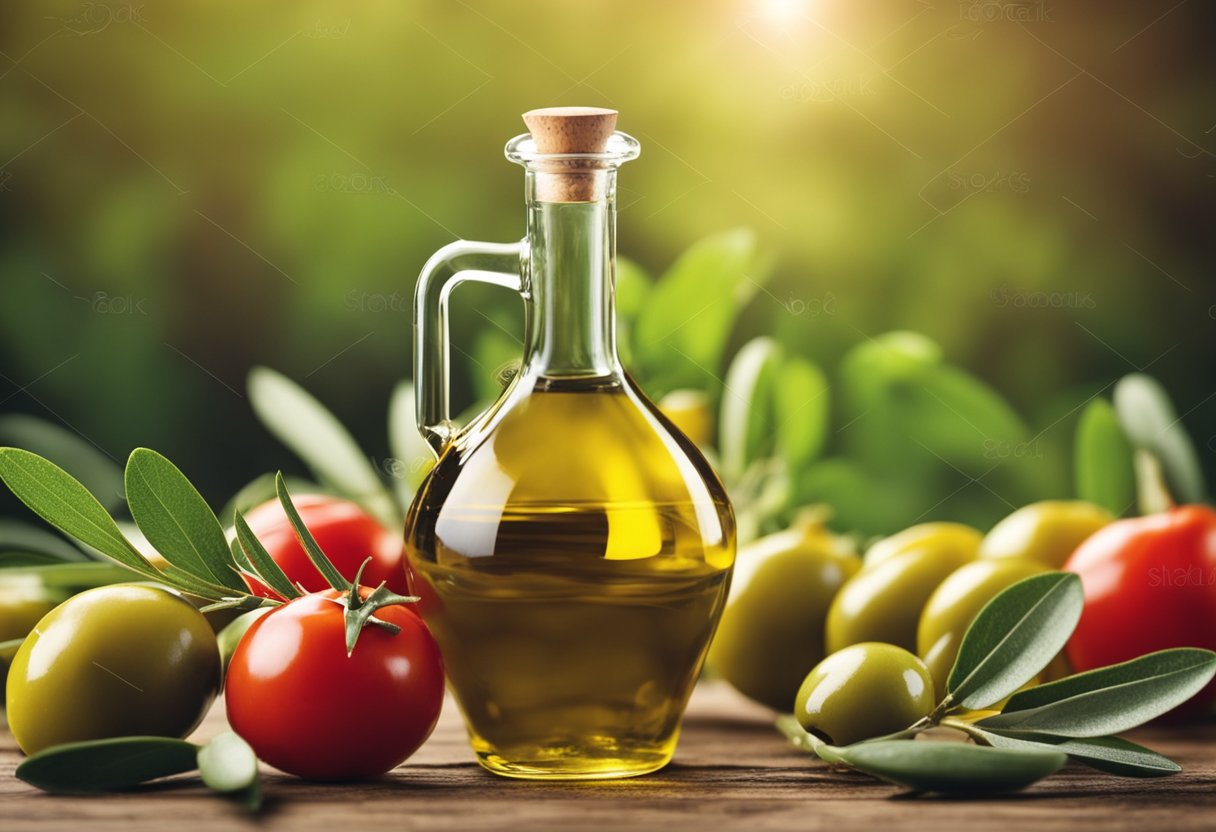
Olive oil and vegetable oil are both commonly used in cooking, but they are not the same thing. While they share some similarities, such as being a source of healthy fats, there are also some key differences in terms of their health benefits and concerns.
One of the main benefits of olive oil is that it contains antioxidants and anti-inflammatory compounds, which can help to reduce inflammation in the body and protect against chronic diseases such as heart disease and cancer.
In fact, the Mediterranean diet, which is rich in olive oil, has been linked to a reduced risk of heart disease and other chronic conditions.
Vegetable oils, on the other hand, may not offer the same health benefits as olive oil. While they are a source of healthy fats, they may also contain high levels of omega-6 fatty acids, which can contribute to inflammation in the body if consumed in excess.
Additionally, some vegetable oils may contain trans fats, which are known to increase the risk of heart disease.
When it comes to cholesterol, olive oil has been shown to have a positive effect on LDL (bad) cholesterol levels.
Studies have found that consuming olive oil can help to lower LDL cholesterol levels and improve overall heart health. Vegetable oils, on the other hand, may not have the same effect on cholesterol levels.
In terms of skin health, both olive oil and vegetable oil can be used as a moisturizer and may offer some benefits for dry or damaged skin.
However, olive oil is also rich in phytosterols, which can help to protect the skin from UV damage and improve overall skin health.
Overall, while both olive oil and vegetable oil can be part of a healthy diet, olive oil may offer more health benefits due to its high levels of antioxidants and anti-inflammatory compounds.
When choosing a vegetable oil, it is important to look for one that is low in omega-6 fatty acids and does not contain trans fats.
Taste and Cooking Applications
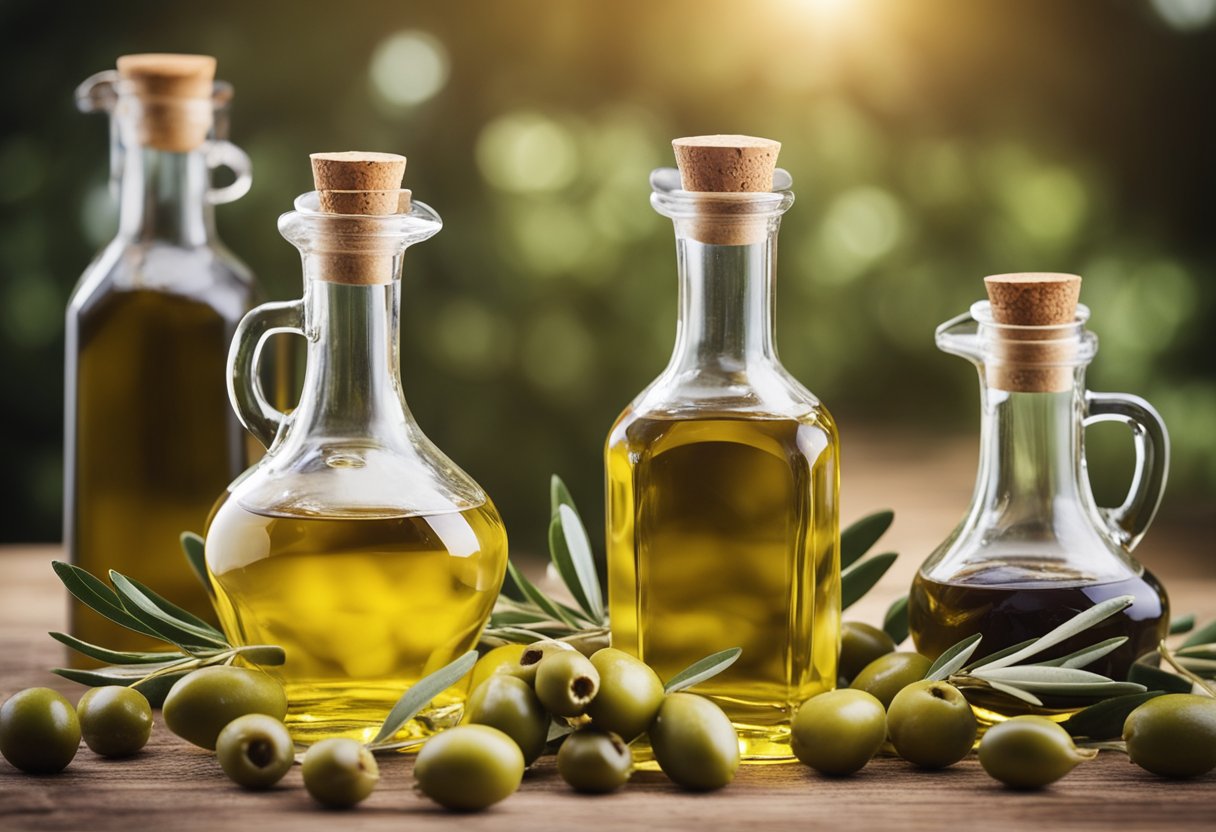
When it comes to taste, olive oil and vegetable oil have distinct differences. Olive oil has a strong, fruity flavor that can add depth and complexity to dishes, while vegetable oil has a neutral flavor that won’t overpower other ingredients.
In terms of cooking applications, both oils can be used for frying, sautéing, and baking. However, because of its lower smoke point, olive oil is not recommended for high-heat frying like fried chicken or french fries.
Vegetable oil, on the other hand, has a higher smoke point and is better suited for these types of dishes.
When it comes to baked goods like bread and cookies, both oils can be used interchangeably. However, because of its unique flavor, olive oil may not be the best choice for certain types of baked goods.
For salad dressings, olive oil is a popular choice because of its distinct flavor. However, vegetable oil can also be used for a more neutral dressing.
Overall, while both oils can be used as cooking oils, their distinct flavors make them better suited for different types of dishes. It’s important to consider the flavor profile of the dish you’re making when choosing between olive oil and vegetable oil.
Smoke Point and Heat Stability
When it comes to cooking oils, one of the most important factors to consider is the smoke point. The smoke point is the temperature at which an oil begins to smoke and break down, creating harmful compounds that can affect the taste and nutrition of your food.
Extra virgin olive oil and vegetable oil are two commonly used oils in the kitchen, but they have different smoke points.
Extra virgin olive oil has a lower smoke point than vegetable oil, making it less suitable for high heat cooking methods like searing and deep frying.
According to a 2018 study published in Acta Scientific Nutritional Health, extra virgin olive oil is safe to use for high heat cooking as it is more chemically stable at high temperatures than previously thought.
However, it is still recommended to use oils with higher smoke points for these cooking methods to avoid any potential negative effects on the taste and nutrition of your food.
Vegetable oil, on the other hand, has a higher smoke point and is better suited for high heat cooking methods. It is also more neutral in flavor compared to extra virgin olive oil, making it a popular choice for frying and baking.
In summary, while both extra virgin olive oil and vegetable oil can be used for cooking, they have different smoke points and heat stability.
Extra virgin olive oil is better suited for low to medium heat cooking methods like sautéing and salad dressings, while vegetable oil is better suited for high heat cooking methods like searing and deep frying.
Specific Types of Vegetable Oils
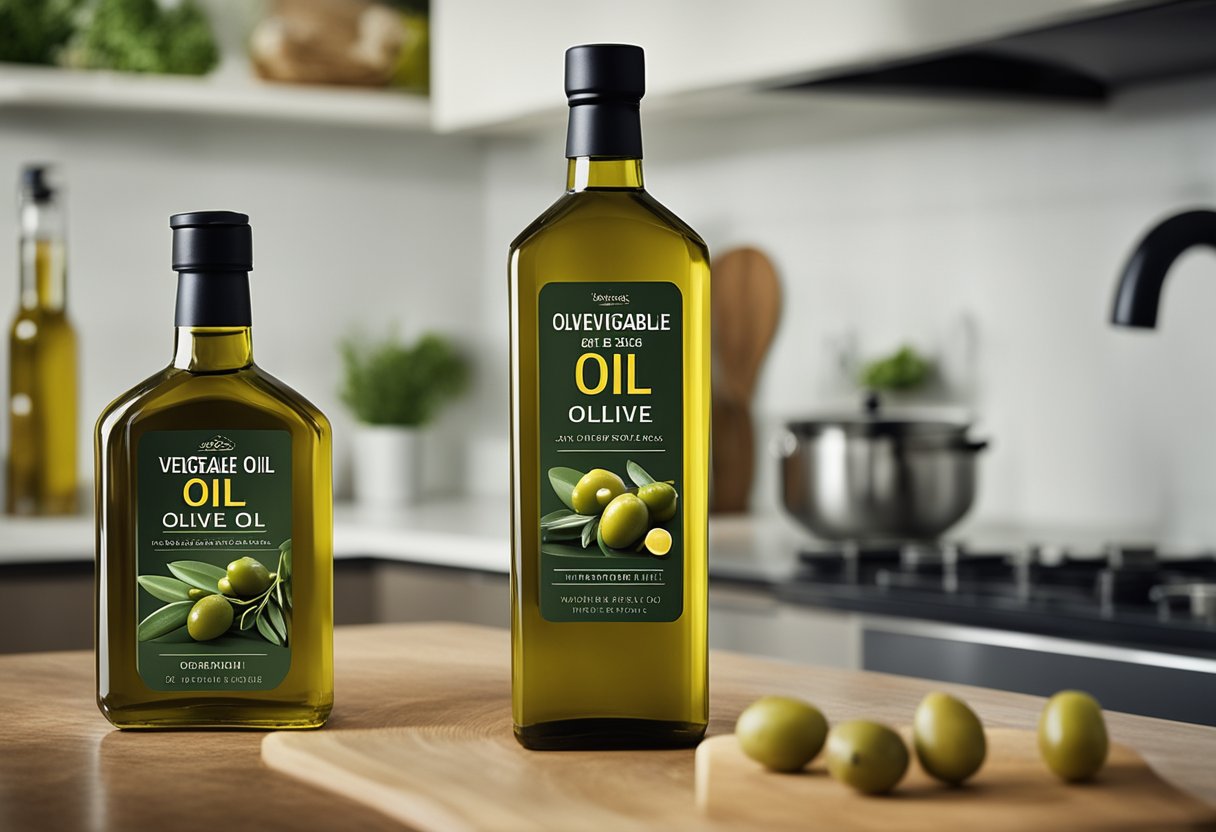
I have already mentioned that vegetable oils are a blend of different oils. Let’s take a closer look at some of the specific types of vegetable oils that are commonly used in cooking.
Canola Oil
Canola oil is a popular vegetable oil that is extracted from rapeseed plants. It has a neutral taste and is often used in baking, frying, and salad dressings. Canola oil is high in monounsaturated fats and is a good source of omega-3 fatty acids.
Corn Oil
Corn oil is extracted from the germ of corn kernels. It has a mild taste and is often used in frying and baking. Corn oil is high in polyunsaturated fats and is a good source of vitamin E.
Sunflower Oil
Sunflower oil is extracted from sunflower seeds. It has a mild taste and is often used in frying, baking, and salad dressings. Sunflower oil is high in polyunsaturated fats and is a good source of vitamin E.
Soybean Oil
Soybean oil is extracted from soybeans. It has a neutral taste and is often used in frying, baking, and salad dressings. Soybean oil is high in polyunsaturated fats and is a good source of vitamin E.
Palm Oil
Palm oil is derived from the fruit of oil palm trees. It has a neutral flavor and is often used in cooking and baking. Palm oil is high in saturated fats and should be consumed in moderation.
Rapeseed Oil
Rapeseed oil is extracted from rapeseed plants. It has a neutral taste and is often used in cooking and baking. Rapeseed oil is high in monounsaturated fats and is a good source of omega-3 fatty acids.
Sesame Oil
Sesame oil is extracted from sesame seeds. It has a nutty flavor and is often used in Asian cuisine. Sesame oil is high in monounsaturated fats and is a good source of vitamin E.
Peanut Oil
Peanut oil is extracted from peanuts. It has a neutral taste and is often used in frying and baking. Peanut oil is high in monounsaturated fats and is a good source of vitamin E.
Avocado Oil
Avocado oil is extracted from the flesh of avocado. It has a neutral taste and is often used in cooking and salad dressings. Avocado oil is high in monounsaturated fats and is a good source of vitamin E.
Grapeseed Oil
Grapeseed oil is extracted from the seeds of grapes. It has a neutral taste and is often used in cooking and salad dressings. Grapeseed oil is high in polyunsaturated fats and is a good source of vitamin E.
Coconut Oil
Coconut oil is extracted from the meat of mature coconuts. It has a sweet, nutty flavor and is often used in baking and cooking. Coconut oil is high in saturated fats and should be consumed in moderation.
In summary, there are many different types of vegetable oils available, each with its own unique taste and nutritional profile. It is important to choose the right type of oil for your cooking needs and to consume them in moderation as part of a healthy diet.
Olive Oil Varieties
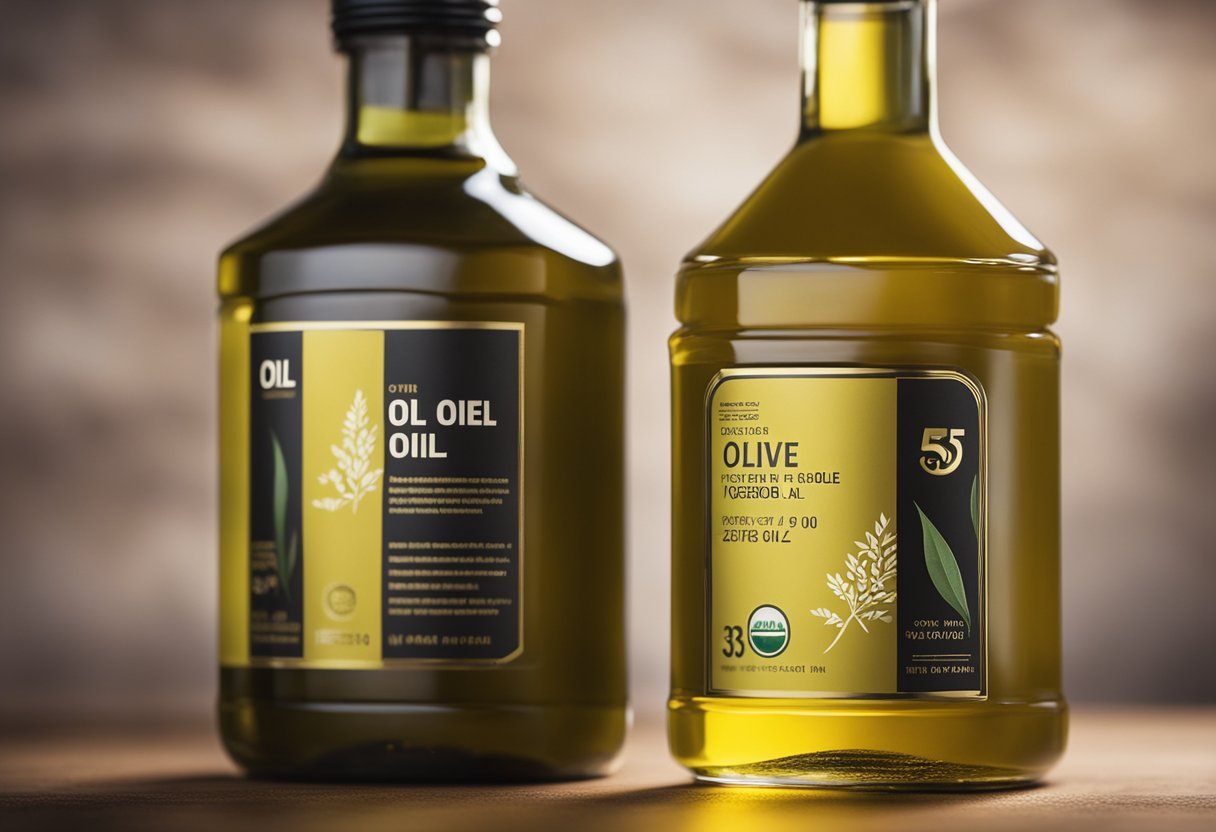
As someone who has been cooking with olive oil for years, I can confidently say that not all olive oils are created equal. There are several varieties of olive oil, each with its own unique flavor and characteristics.
One of the most popular varieties is extra virgin olive oil (EVOO). This type of olive oil is made from the first cold pressing of the olives and is considered to be the highest quality olive oil. EVOO has a fruity and slightly bitter taste, and is often used in salads and for dipping bread.
Another type of olive oil is virgin olive oil. This oil is made from the second pressing of the olives and has a milder flavor than EVOO. It is often used for sautéing and frying.
Pure olive oil is a blend of virgin and refined olive oils. It has a mild flavor and is often used for baking and cooking.
Light olive oil is a blend of virgin and refined olive oils, but it has a lighter flavor and color than pure olive oil. It is often used for baking and cooking when a lighter flavor is desired.
It is important to note that extra virgin olive oil is not the same as vegetable oil. Vegetable oil is typically made from a blend of different oils, such as soybean, corn, and canola oil.
While both olive oil and vegetable oil can be used for cooking, they have different flavor profiles and nutritional values.
In summary, there are several varieties of olive oil, each with its own unique flavor and characteristics. Extra virgin olive oil is considered to be the highest quality olive oil and is often used in salads and for dipping bread.
Virgin olive oil, pure olive oil, and light olive oil are also available and are often used for sautéing, frying, baking, and cooking. It is important to note that olive oil is not the same as vegetable oil and that they have different flavor profiles and nutritional values.
Substituting and Using Oils Interchangeably
When it comes to cooking, it’s not uncommon to run out of a specific type of oil and need to substitute it with another. While olive oil and vegetable oil are both commonly used in cooking, they are not the same thing. However, they can be used interchangeably in certain circumstances.
If a recipe calls for a neutral oil, such as canola or grapeseed oil, both olive oil and vegetable oil can be used as a substitute.
However, keep in mind that olive oil has a distinct flavor that may affect the taste of the final dish. In some cases, this may be desirable, while in others, it may not be.
When using olive oil as a substitute for vegetable oil, it’s important to keep in mind that olive oil has a lower smoke point than vegetable oil.
This means that if you’re cooking at a high temperature, such as when frying, the olive oil may smoke and burn, which can affect the flavor of the food and even be harmful to your health. In these cases, it’s best to stick with vegetable oil.
It’s also important to consider the ingredients in the dish you’re making when deciding whether to use olive oil or vegetable oil. For example, if you’re making a dish that has a lot of strong flavors, such as garlic or spices, the flavor of the olive oil may be masked, making it a good choice.
On the other hand, if the dish has more delicate flavors, such as a light salad dressing, vegetable oil may be a better choice as it has a more neutral flavor.
In summary, while olive oil and vegetable oil are not the same thing, they can be used interchangeably in certain circumstances.
When substituting one for the other, consider the flavor of the oil, the smoke point, and the ingredients in the dish to ensure the best possible outcome.
Frequently Asked Questions
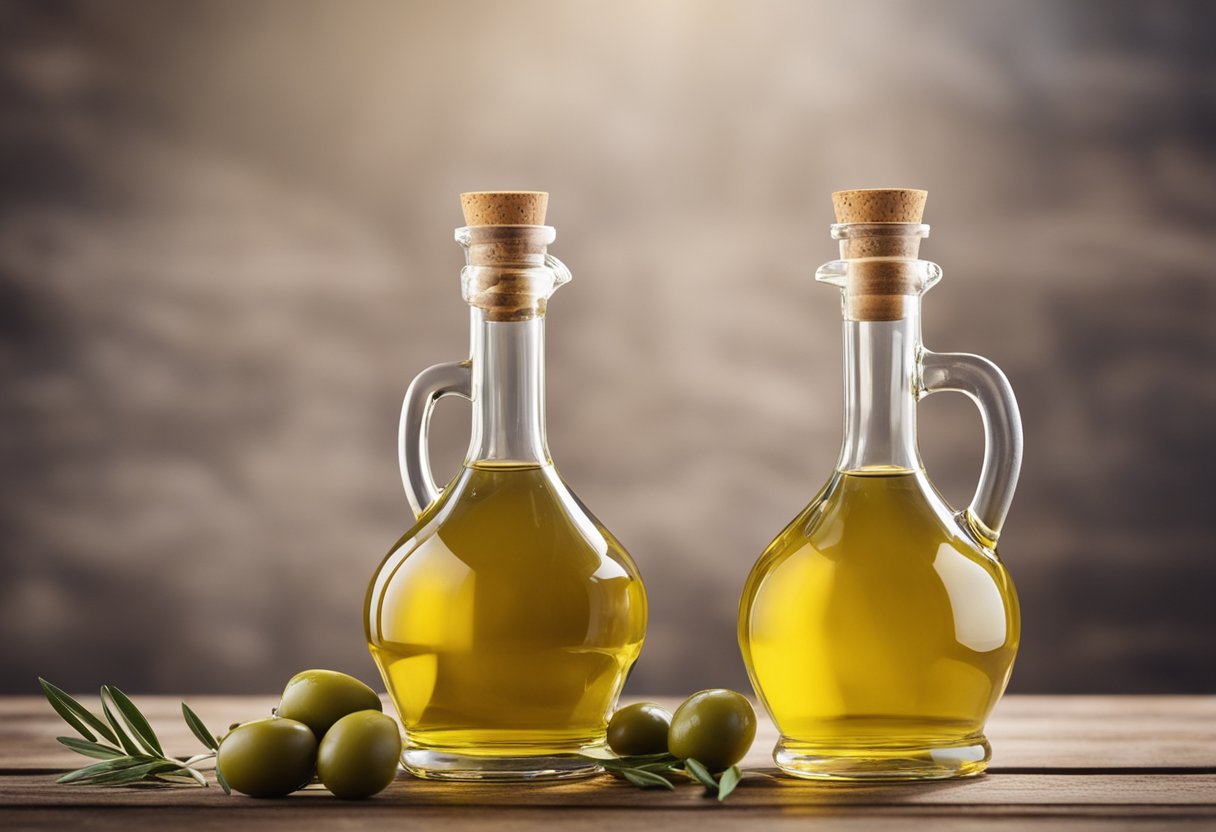
Can vegetable oil be used as a substitute for olive oil in cooking?
Yes, vegetable oil can be used as a substitute for olive oil in cooking. However, it is important to note that olive oil has a stronger flavor than vegetable oil, so the taste of the dish may be slightly different.
Additionally, olive oil is generally considered to be healthier than vegetable oil due to its higher levels of healthy fats and antioxidants.
Is olive oil better than vegetable oil for frying?
Olive oil is generally considered to be better than vegetable oil for frying because it has a higher smoke point, which means it can be heated to a higher temperature before it starts to smoke and burn.
This makes it less likely to produce harmful compounds when heated. Additionally, olive oil has higher levels of healthy fats and antioxidants than vegetable oil.
What is the difference between olive oil and vegetable oil?
The main difference between olive oil and vegetable oil is the source of the oil. Olive oil is made by pressing olives, while vegetable oil is made by pressing a mixture of different vegetables, such as sunflower, corn, and soybean.
Additionally, olive oil has a stronger flavor and higher levels of healthy fats and antioxidants than vegetable oil.
Can you use olive oil instead of vegetable oil for baking?
Yes, you can use olive oil instead of vegetable oil for baking. However, it is important to note that olive oil has a stronger flavor than vegetable oil, so the taste of the baked goods may be slightly different.
Additionally, olive oil is generally considered to be healthier than vegetable oil due to its higher levels of healthy fats and antioxidants.
Can olive oil be substituted for vegetable oil in brownies?
Yes, olive oil can be substituted for vegetable oil in brownies. However, it is important to note that olive oil has a stronger flavor than vegetable oil, so the taste of the brownies may be slightly different.
Additionally, olive oil is generally considered to be healthier than vegetable oil due to its higher levels of healthy fats and antioxidants.
Which is healthier: olive oil or vegetable oil?
Olive oil is generally considered to be healthier than vegetable oil due to its higher levels of healthy fats and antioxidants.
Additionally, olive oil has been linked to a lower risk of heart disease, stroke, and certain types of cancer. However, it is important to note that both oils can be a part of a healthy diet when used in moderation.







